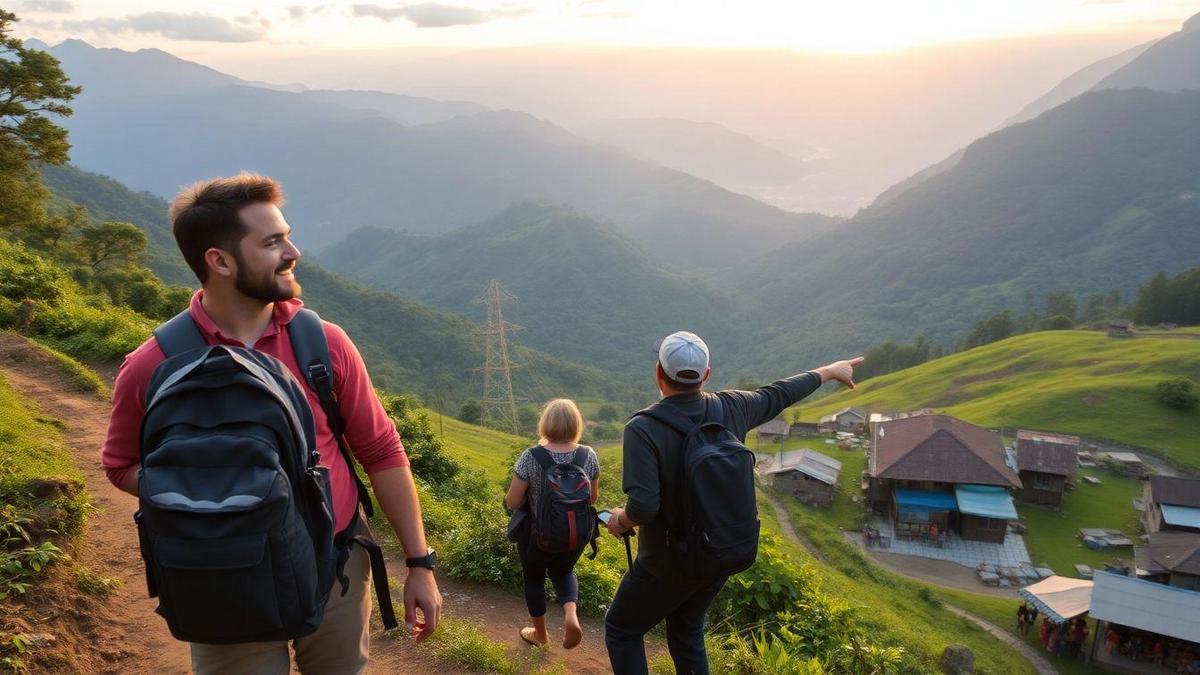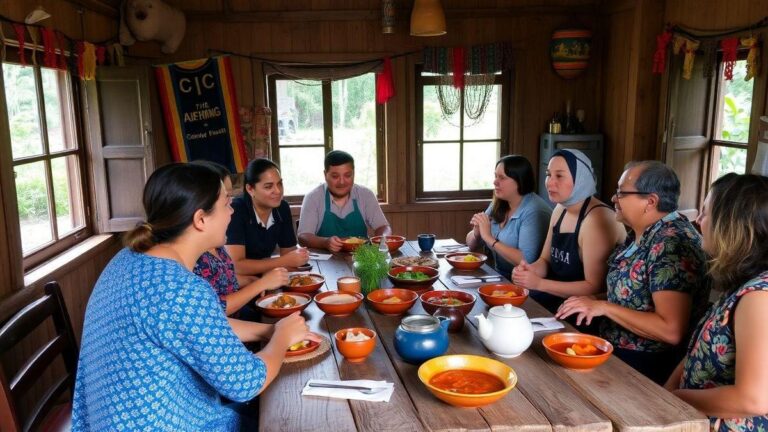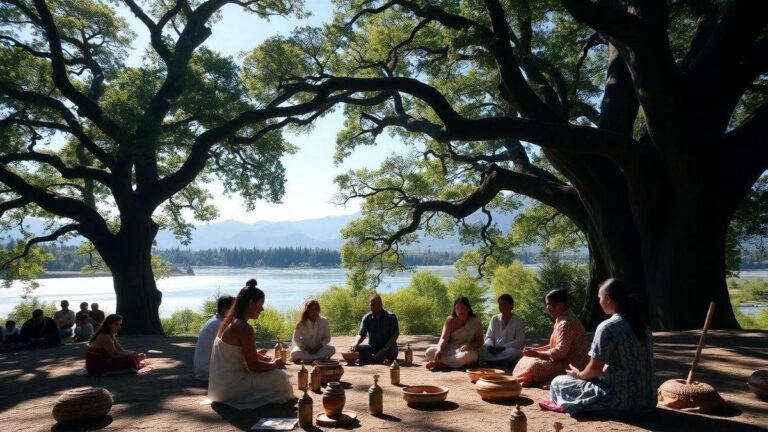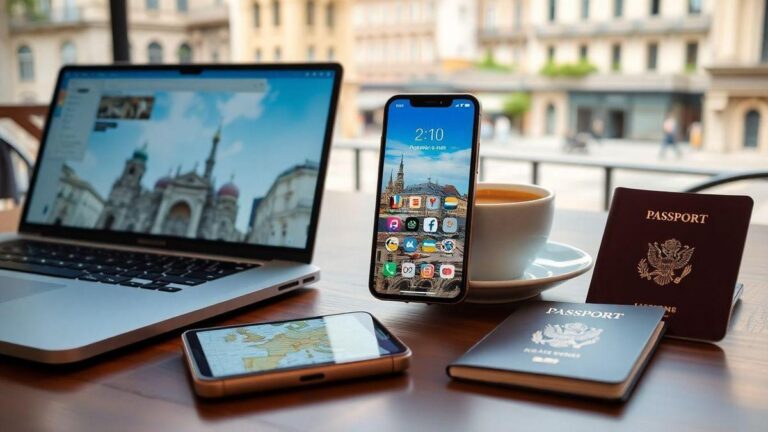Best adventure activities for solo travelers learning languages
Ready to explore the best adventure activities for solo travelers learning languages? You’re in for a treat! This article will take you through amazing outdoor adventures that not only get your heart pumping but also boost your language skills. From hiking trails with language classes to thrilling camping trips perfect for practicing speaking, you’ll find plenty of fun ways to learn. Plus, we’ll discuss how nature and culture can make language learning even more exciting. Get ready to dive in and discover new experiences that make learning a language a blast!
Key Points to Remember
- Try hiking in a new country to explore nature.
- Join a cooking class to learn local dishes.
- Take part in guided tours for fun facts and practice.
- Attend language exchange meetups to make new friends.
- Sign up for adventure sports to boost confidence and skills.
Top Outdoor Adventures for Language Learners
Hiking Trails with Language Classes
Imagine hiking through lush forests while picking up a new language! Many hiking trails offer language classes along the way. You can learn vocabulary related to nature, like “tree,” “river,” or “mountain,” and practice speaking with fellow hikers. These adventures are often guided by locals who share their knowledge of the land and language.
Some popular hiking spots that offer language classes include:
| Location | Language Offered | Duration |
|---|---|---|
| Appalachian Trail | Spanish | 3 Days |
| Camino de Santiago | French | 5 Days |
| Pacific Crest Trail | English | 7 Days |
This blend of exercise and learning creates a fun and engaging atmosphere. You’ll not only enjoy the scenery but also connect with others who share your love for languages.
Camping Trips to Practice Speaking
Camping trips are another fantastic way to immerse yourself in a language. Picture yourself sitting around a campfire, sharing stories in your target language. Many camps offer language immersion programs where you can practice speaking with native speakers.
Here are some benefits of camping trips for language learners:
- Real-life practice: Use the language in everyday situations like cooking or setting up tents.
- Cultural exchange: Meet people from different backgrounds, enhancing your understanding of the language.
- Fun activities: Engage in games and activities that require communication, making learning enjoyable.
Benefits of Nature for Language Learning
Nature plays a big role in helping you learn a language. Studies show that being outdoors can boost your mood and improve focus. When you’re relaxed, your brain absorbs information better.
Here are a few ways nature helps with language learning:
- Reduced stress: Fresh air and beautiful scenery can calm your mind, making it easier to learn.
- Increased motivation: Exploring new places inspires you to practice and use your language skills.
- Enhanced memory: Being in nature can improve your memory retention, helping you remember new words and phrases.
Cultural Experiences that Boost Language Skills
Cooking Classes in Local Markets
Imagine walking through a bustling local market, the air filled with the aroma of fresh spices and sizzling street food. Cooking classes in these vibrant spots are a fantastic way to dive into the local culture while picking up the language. You get to learn cooking techniques and local phrases at the same time!
In these classes, you might find yourself chopping vegetables while chatting with the instructor about traditional recipes. This hands-on experience makes learning feel alive and engaging. Plus, you can ask questions, practice speaking, and even make new friends along the way.
Here’s a quick look at what you can expect from cooking classes:
| Feature | Details |
|---|---|
| Location | Local markets or community kitchens |
| Language Used | Local language, with some English support |
| Activities | Cooking, tasting, and cultural discussions |
| Outcome | Improved language skills and culinary knowledge |
Festivals and Events for Language Practice
Festivals are a goldmine for language practice! They offer a chance to see the culture in full swing. Whether it’s a music festival, a food fair, or a local holiday celebration, you can immerse yourself in the language.
At these events, you’ll hear locals speaking, and you can join in on conversations. Maybe you’ll learn a new slang term or two! Don’t be shy; ask questions, share stories, and let the excitement of the festival guide your learning.
Here’s how festivals can help you boost your language skills:
| Benefit | Description |
|---|---|
| Real Conversations | Engage with locals in a lively setting |
| Cultural Insights | Learn about traditions while practicing language |
| Fun Atmosphere | Enjoy music, food, and art while learning |
How Culture Enhances Language Learning
Culture is the heart of language learning. It’s what makes words come alive! When you experience a culture firsthand, you understand the context behind the words. This understanding helps you remember and use the language more effectively.
For instance, when you learn a phrase related to a local dish, you’ll likely remember it better after tasting that dish! This connection between experience and language helps you retain what you learn.
In short, diving into the local culture through cooking classes and festivals gives you the tools to speak confidently and connect with people.
Unique Solo Travel Activities for Language Acquisition
Language Exchange Meetups
When you’re traveling solo, language exchange meetups can be a fantastic way to practice your skills. Imagine sitting in a cozy café, chatting with locals who are eager to help you learn their language. You get to share your language too! This mutual exchange makes learning fun and engaging.
You can find these meetups on websites like Meetup.com or through local social media groups. They often take place in informal settings, making it easy to strike up conversations. Plus, you’ll make new friends along the way!
Volunteering Opportunities Abroad
Volunteering abroad is another great way to pick up a language. Think about it: you’re not just learning words; you’re using them in real-life situations. Whether you’re teaching English, helping at an animal shelter, or working on community projects, you’ll be surrounded by native speakers.
Here’s a quick look at some popular volunteering options:
| Type of Volunteering | Language Skills Gained | Locations Available |
|---|---|---|
| Teaching English | Classroom vocabulary, slang | South America, Asia |
| Conservation Projects | Nature-related vocabulary | Africa, Australia |
| Community Development | Everyday conversation | Europe, Asia |
The Impact of Real-Life Practice on Learning
Real-life practice is a game-changer when it comes to learning a language. You can memorize words from a textbook, but nothing beats speaking with real people. It helps you understand accents, slang, and cultural nuances.
For example, while volunteering in Spain, you might learn how to order food in a local restaurant or ask for directions. These experiences make the language come alive! Plus, you’ll gain confidence as you communicate with locals, making your travels even more memorable.
Frequently Asked Questions
What are the best adventure activities for solo travelers learning languages?
You can try hiking, scuba diving, or even taking dance lessons. These activities help you meet new people while practicing your language skills.
How can adventure activities help with language learning?
These activities put you in real-life situations. You will use the language to communicate, which makes learning more fun and effective.
Are there any solo trips focused on adventure and language learning?
Absolutely! Many tour companies offer trips that combine adventure sports and language classes. You can learn while you explore!
Can I make friends while doing adventure activities as a solo traveler?
Yes, you can! Adventure activities are a great way to meet fellow travelers. You’ll bond over shared experiences and practice your language skills together.
What destinations are best for adventure activities and language learning?
Popular spots include Costa Rica, Spain, and Thailand. They offer exciting adventure activities and immersive language opportunities.

Hey, I’m Paula — traveler, language nerd, and the curious mind behind znewz.com. I’ve always believed that real connections happen through words, gestures, and shared experiences — not algorithms. That’s why I created this blog: to share travel stories from around the world and explore how language helps us connect in ways that AI still can’t. Whether I’m getting lost in a tiny town or striking up a chat in a language I barely know, I’m here to show that sometimes the best moments happen when tech takes a back seat.






